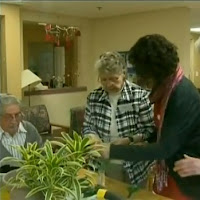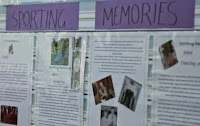Welcome
Alzheimer’s & Dementia Weekly was inspired by my mother’s journey with autoimmune dementia and my dad’s with Parkinson’s dementia.
Walking beside them opened my eyes to the confusion, the courage, and the deep humanity found in families and professionals caring for someone they love.
Since its debut in 2007, this site has had one clear mission:
to separate the wheat from the chaff — to highlight only the most essential articles, studies, tools, and videos from the overwhelming river of dementia-related information.
(At last count, Google receives a new post on Alzheimer’s or dementia every seven minutes.) For anyone seeking clarity or support, that constant flow can be exhausting and discouraging.
Alzheimer’s Weekly filters, translates, and explains what matters most, helping hundreds of thousands of families, clinicians, and care teams around the world make sense of the latest research and best practices.
This site is dedicated to everyone who works—often quietly and tirelessly—to preserve dignity in the community of people living with dementia.
About the Editor
With experience in dementia caregiving, public education, and Alzheimer’s-focused writing—and a professional research background shaped in what many consider one of the world’s top laboratories—I work to make complex findings clear, practical, and genuinely helpful for both families and professionals providing care.
My goal is simple:
Translate the best science into guidance that lightens the load, strengthens understanding, and helps every person with dementia live with dignity.
Peter Berger
Editor, Alzheimer’s Weekly












My husband and I often joke about the things I get mixed up and the crazy things I say sometimes as a result of my dementia. I think a little levity between partners is a good thing, but I would never joke about the seriousness of this disease with others outside of my dementia world.
My understanding is that smiling, being helpul, making positive small talk, making small jokes and similar releases good chemicals in our brains and bodies. Even before I became a Caregiver to Mom with AD, practiced that. Once in the roll of 24/7/365, made sure to smile and make jokes and small talk [and larger talks] with her. It sure made it easier, as she responded to that. One retort I had was: "Mom, you would not have allowed me to get away with that when I was a kid!!". I was not being mean. Over time and experimenting found what I could say and would modify what I would say as the Disease progressed. But Mom liked the smiling, the positive reinforcements and small jokes all the way to the end.